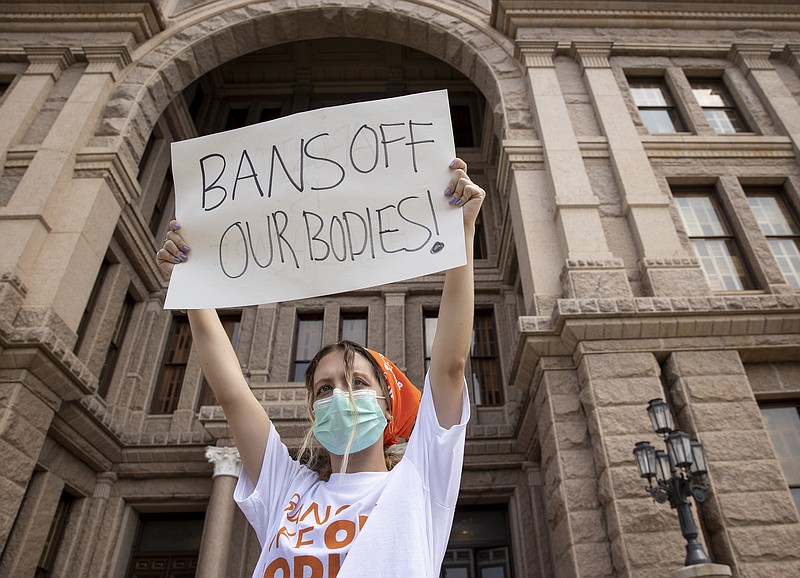By the Associated Press
The nation's most far-reaching curb on abortions since they were legalized a half-century ago took effect Wednesday in Texas, with the Supreme Court silent on an emergency appeal to put the law on hold.
If allowed to remain in force, the law, which bans most abortions, would be the strictest against abortion rights in the United States since the high court's landmark Roe v. Wade decision in 1973.
The Texas law, signed by Republican Gov. Greg Abbott in May, prohibits abortions once medical professionals can detect cardiac activity, usually around six weeks and before most women know they're pregnant.
It's part of a broader push by Republicans across the country to impose new restrictions on abortion. At least 12 other states have enacted bans early in pregnancy, but all have been blocked from going into effect.
What makes the Texas law different is its unusual enforcement scheme. Rather than have officials responsible for enforcing the law, private citizens are authorized to sue abortion providers and anyone involved in facilitating abortions. Among other situations, that would include anyone who drives a woman to a clinic to get an abortion. Under the law, anyone who successfully sues another person would be entitled to at least $10,000.
"Starting today, every unborn child with a heartbeat will be protected from the ravages of abortion," Abbott said in a statement posted on Twitter. "Texas will always defend the right to life."
But protests were quick.
President Joe Biden said in a statement the law "blatantly violates the constitutional right established under Roe v. Wade and upheld as precedent for nearly half a century." He said the law "outrageously" gives private citizens the power "to bring lawsuits against anyone who they believe has helped another person get an abortion."
Likewise, the American Medical Association said it was deeply disturbed by "this egregious law" and disappointed by the Supreme Court's inaction.
The law "not only bans virtually all abortions in the state, but it interferes in the patient-physician relationship and places bounties on physicians and health care workers simply for delivering care," said a statement from Dr. Gerald E. Harmon, the AMA president.




